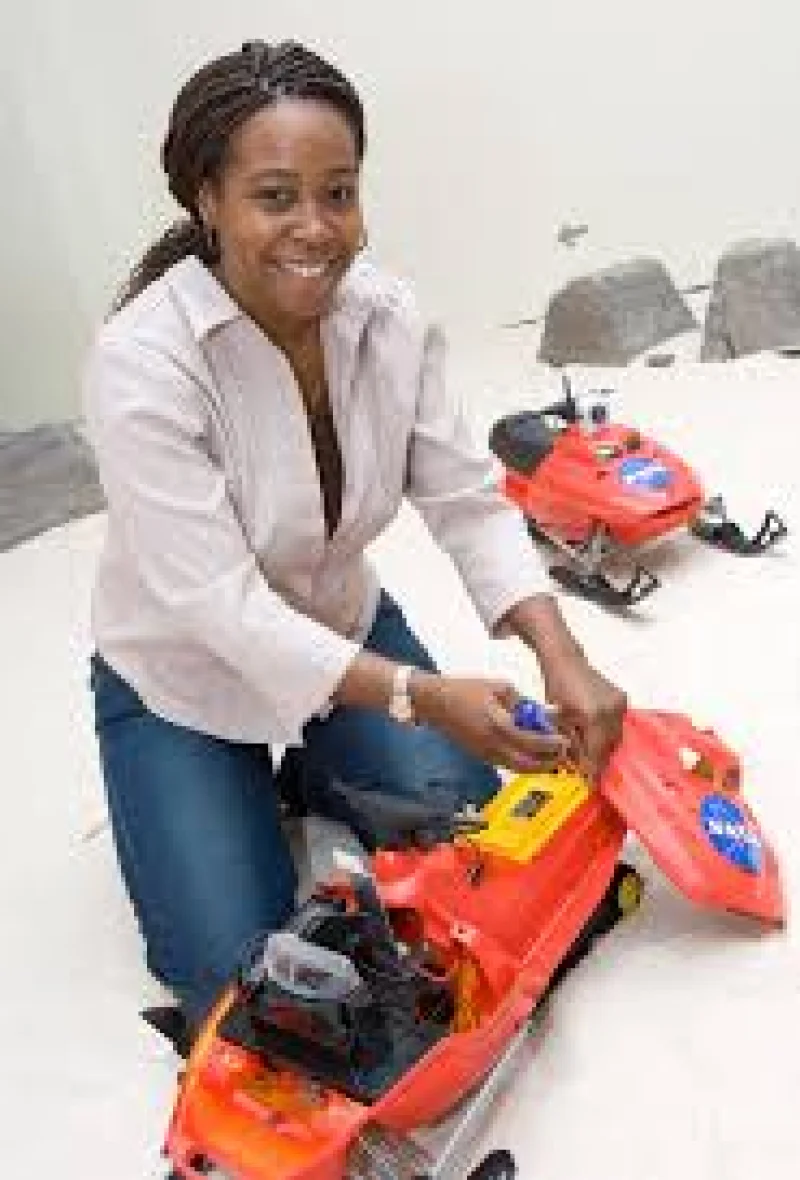Short Summary
Ayanna Howard is a prominent American roboticist and educator known for her groundbreaking work in robotics and artificial intelligence. Her contributions to the field have been recognized globally, making her a leading figure in developing robots that can interact intelligently with humans. In addition to her research, she has been a passionate advocate for diversity and inclusion in STEM fields, inspiring a new generation of engineers and scientists.
Early Life & Education
Born in 1972 in Providence, Rhode Island, Ayanna Howard was raised in a family that encouraged curiosity and intellectual growth. Her father, an engineer, played a significant role in fostering her interest in technology and science. Howard's early education was marked by a strong interest in mathematics and the sciences, which led her to earn a Bachelor of Science in Electrical Engineering from Brown University. She further pursued her passions by obtaining a Master’s and Ph.D. in Electrical Engineering from the University of Southern California, where she specialized in robotics and artificial intelligence. Her academic journey was influenced by her desire to create technology that could positively impact society.
Career Highlights
Upon completing her education, Ayanna Howard joined NASA's Jet Propulsion Laboratory, where she worked on developing algorithms for the Mars rover. Her innovative work on autonomous robots earned her numerous accolades and set a foundation for her future endeavors. Later, she transitioned into academia, joining the faculty at Georgia Institute of Technology, where she founded the Human-Automation Systems Lab. Her research focuses on human-robot interaction, creating systems that can assist individuals with disabilities, and enhancing the field of robotics through interdisciplinary approaches. In 2017, she became the Chair of the School of Interactive Computing at Georgia Tech, further solidifying her influence in the field.
Major Achievements
- - Developed algorithms for NASA's Mars Rover, significantly advancing autonomous robotic exploration.
- - Founded the Human-Automation Systems Lab at Georgia Tech, pioneering research in human-robot interaction.
- - Served as Chair of the School of Interactive Computing at Georgia Tech, promoting interdisciplinary research.
- - Published numerous influential papers in robotics and artificial intelligence, contributing to academic and practical advancements.
- - Advocate for diversity in STEM, inspiring and mentoring young scientists from underrepresented groups.
Famous Quotes
- "Success is not just about making groundbreaking discoveries; it's about inspiring the next generation to do the same."
- "Robots should be designed to enhance human capabilities, not replace them."
Interesting Facts
- Ayanna Howard's work at NASA inspired elements of the animated film "Big Hero 6."
- She is a co-founder of Zyrobotics, a company developing inclusive educational technologies for children with disabilities.
- Howard has been recognized by MIT Technology Review as one of the world’s top young innovators.
Legacy / Influence
Ayanna Howard's legacy is defined by her transformative contributions to robotics and artificial intelligence. Her work has facilitated the development of robots that interact intuitively with humans, improving accessibility and quality of life for many. As an advocate for diversity in STEM, she has inspired countless young individuals to pursue careers in science and engineering, ensuring a more inclusive and innovative future for the field.
FAQ
Q: Why is Ayanna Howard famous?
A: She is renowned for her pioneering work in robotics and AI, particularly in developing human-interactive robots.
Q: What was her role at NASA?
A: Howard worked on developing algorithms for the Mars Rover, advancing robotic exploration technology.
Q: What company did she co-found?
A: She co-founded Zyrobotics, which creates educational tech for children with disabilities.
Q: What is her influence in the field of STEM?
A: She has been a leading advocate for diversity and inclusion, mentoring future scientists and engineers.











